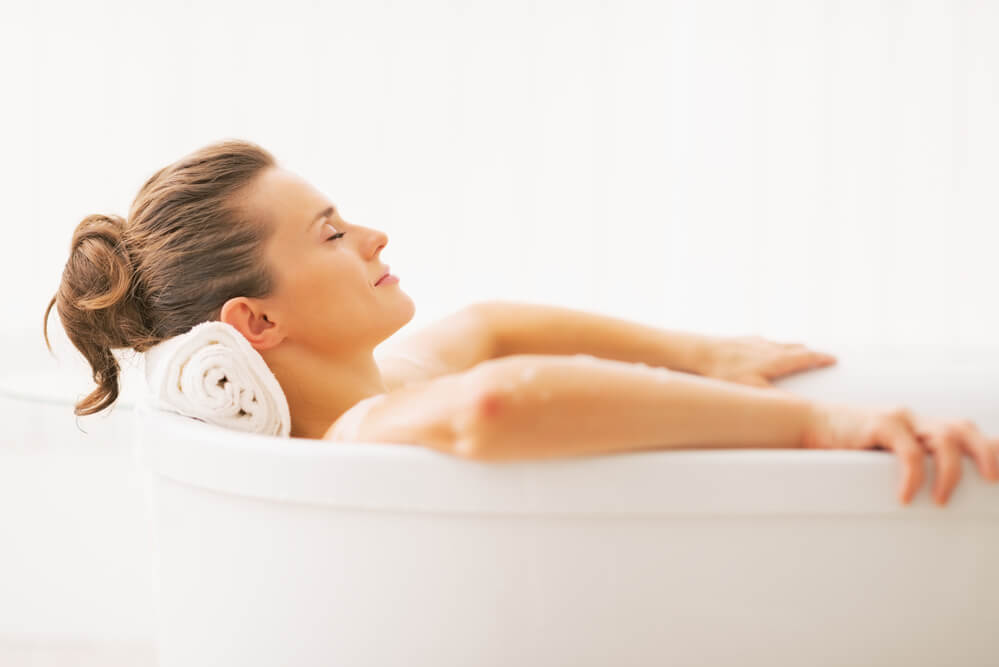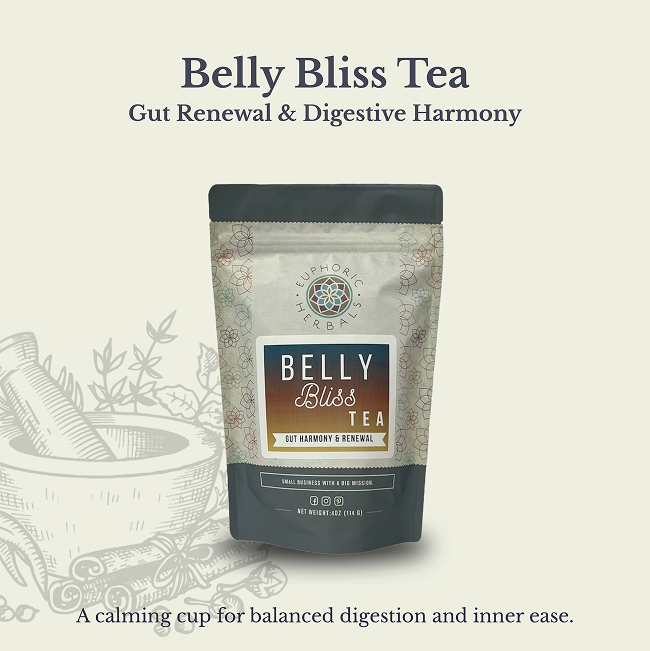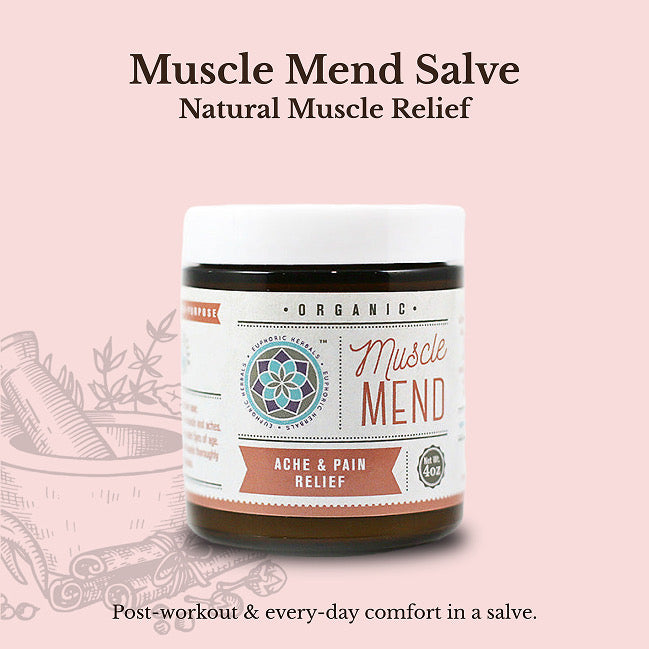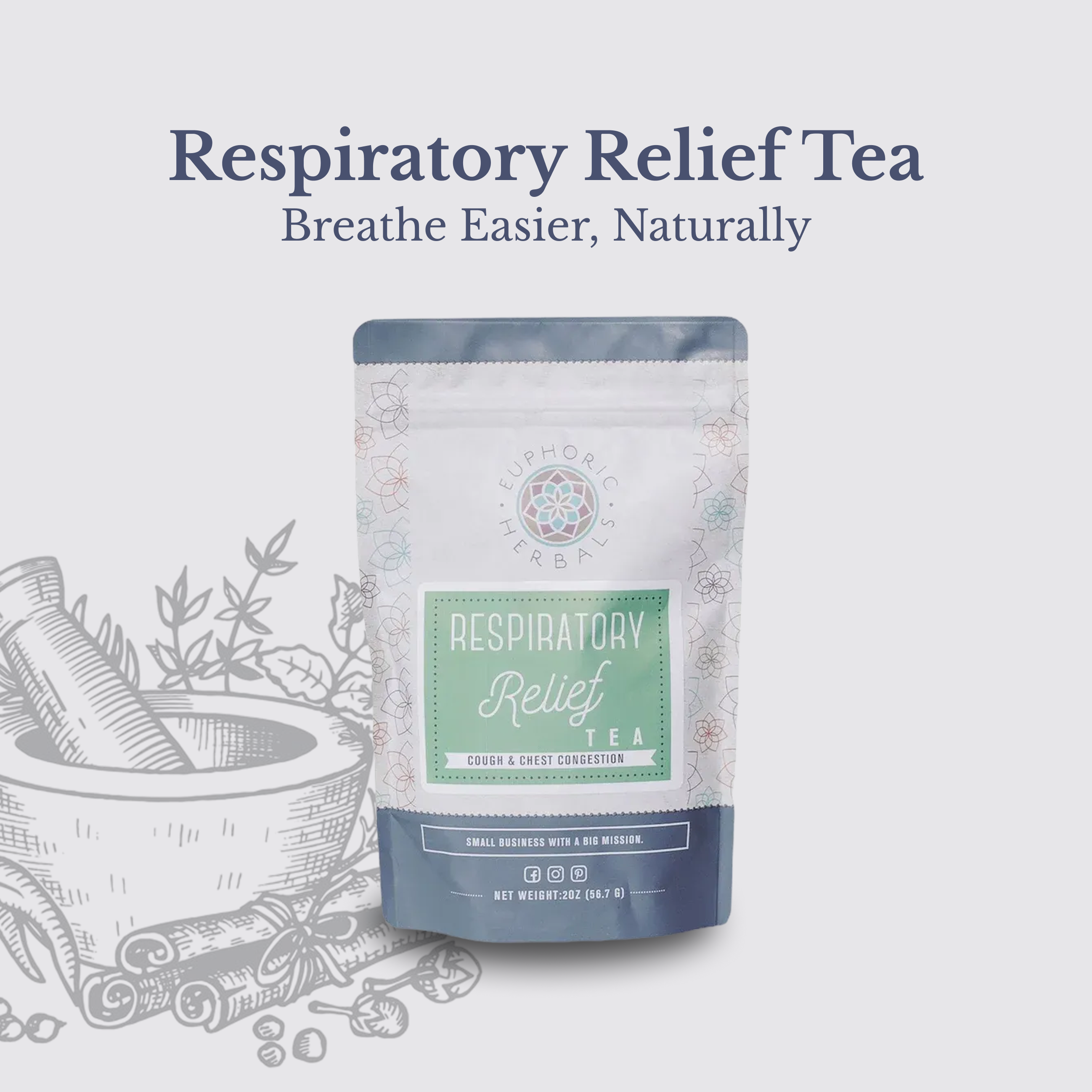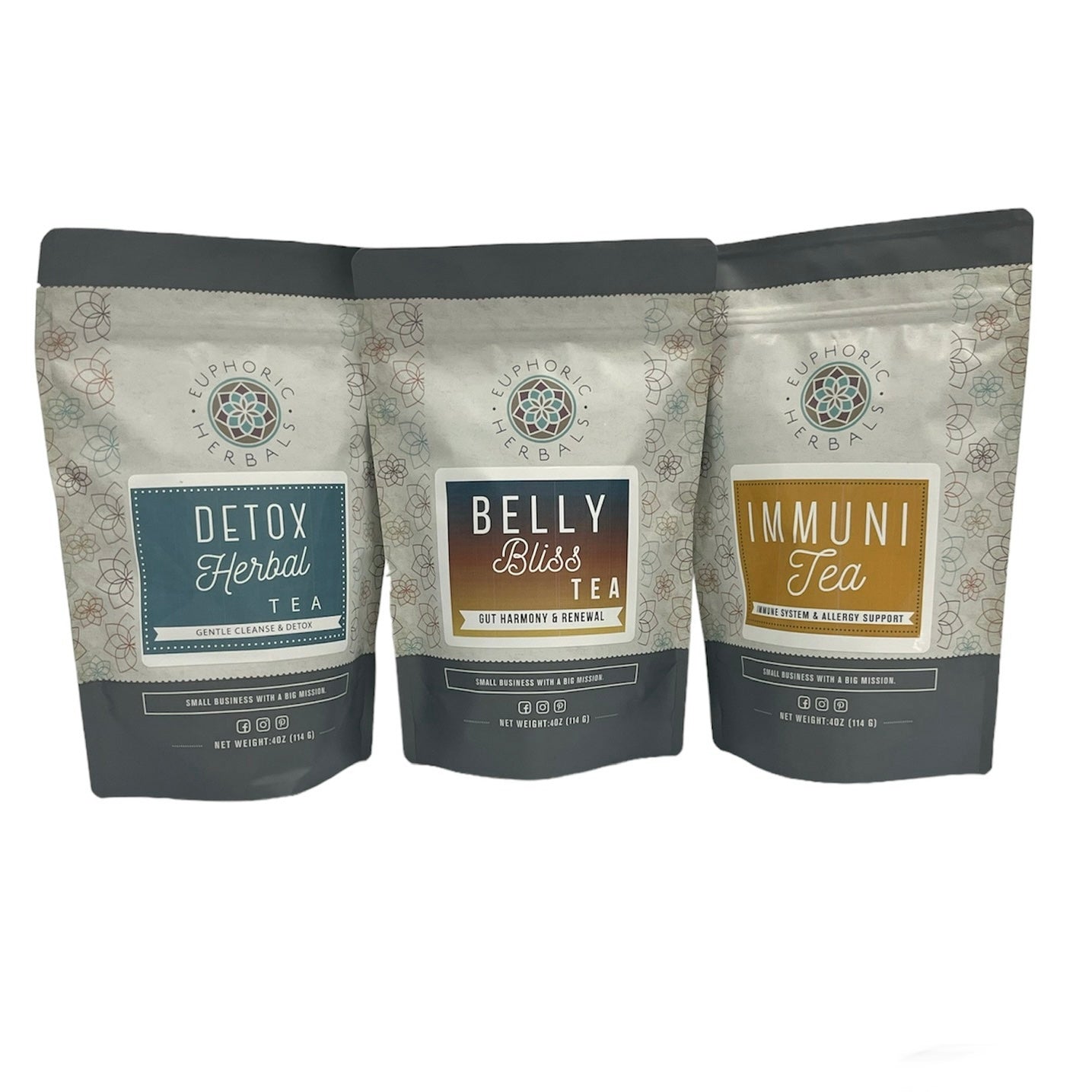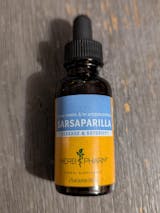Taking a warm, relaxing bath has lots of benefits all on its own. Water is known to relax, de-stress, and even detox our bodies. Adding herbs to bath time increases these benefits and is therapeutic for your body and mind.
If you enjoy drinking herbal tea, you know that it has many healthy and beneficial properties. Infusing herbs into bathwater is sort of like soaking in a giant cup of herbal tea. It won't be exactly the same as drinking a cup of tea, but your skin will still absorb a lot of the good stuff.
Here's more about the benefits you can get from herbal bath teas, plus some herbs and recipes to try.
Top Benefits of Herbal Bath Teas
Stress Relieving
Stress is something that affects all of us. Not all stress is bad, but it can easily become chronic and have a negative impact on your health. Or maybe it keeps you from falling asleep at night, and you need a way to calm your mind.
Herbs are one of the best natural supports for your body and mind while going through stressful periods. Herbal teas for stress, like chamomile, support your nervous system and can help calm an anxious mind. Combining these powerful herbs with warm bath water is an amazing way to relax before bedtime.
Herbs for relaxing: Lavender is a classic herb for stress and sleep. Rose petals and chamomile are both floral and soothing. Lemon balm calms the mind and soothes restlessness.
Rejuvenating
Sometimes you're more in need of energy and rejuvenation than relaxation. While herbal bath teas can't take the place of a good night's sleep and healthy eating, using certain herbs can invigorate and clear your mind.
Herbs are gentle and tend to calm you even as they rejuvenate (unlike caffeine). If you really want to be invigorated, use cool to cold bath water to go with your herbal bath tea.
Herbs for rejuvenating: Mints like peppermint (strong) and spearmint (milder) have an energizing effect. Rosemary and basil can help to clear your mind. Lemon peel and lemon verbena are fresh and invigorating.
Skin Soothing

There are many beneficial herbs for your skin. You'll see them as ingredients in all kinds of skincare products, and using the right ones as an herbal bath tea can be especially soothing for itchy, irritated, or dry skin.
To get the most out of a bath for your skin, use lukewarm or cool water. Excessively hot water can irritate skin further, especially if it's red to start with. Applying lotion or oil after bathing also helps keep moisture in your skin.
Herbs for skin: Oats are one of the best bath options for dry skin. Calendula is one of the top overall herbs for skin and soothes many skin irritations. Lavender is soothing and cleansing. Burdock root calms inflammation and breakouts.
Supports Healing
Herbal baths are often "prescribed" to speed and support your body's healing process. Some herbs are decongesting, others help sweat out a fever, and still others help with detoxification.
Certain herbs can also promote healing for your skin. Women have long used an herbal sitz bath postpartum to help with pain and promote recovery.
Herbs for healing: Yarrow and comfrey are both known as herbs that help wounds to heal. Yarrow can also be used as a bath tea for fevers along with elder flower and peppermint.
Eases Sore Muscles
There are many herbs that help with pain and inflammation. You can use some of these in a bath to aid sore muscles and other aches.
Soaking in warm to hot water with an herbal bath tea is great for relaxing sore and tight muscles. Taking a cool to cold bath can be good for certain types of soreness, strains, and injuries. Adding Epsom salts can also help muscles recover.
Herbs for soreness: Yarrow and comfrey help with inflammation, soreness, and bruises. Chamomile and peppermint are especially helpful for headaches. Cayenne helps aches and boosts circulation, but use as a foot bath only!
How to Make an Herbal Bath Tea

There are two ways you can make an herbal bath tea.
The first way is to simply mix up your herbs and put them into a muslin bag, old nylon, or something similar. Tie the bag to the faucet in your bathtub, and let hot water run through it while you fill the tub. Adjust the water temperature partway through so that you get it as warm or cool as you want it.
This is an easy way to do an herbal bath tea, but your infusion won't be very strong. For a more powerful bath, use the infusion method below.
- Fill a quart jar with anywhere from 1/4 cup to 1 cup of herbs, depending on how strong you want your tea to be.
- Pour just boiled water over the herbs, filling up the quart jar.
- Cover the jar and let it steep for at least an hour and as long as overnight.
- Strain out the herbs and add the tea infusion to your bathwater as you fill the tub.
This second method takes a bit more preparation but will give you a stronger bath tea with stronger herbal properties.
Other Ingredients
You don't have to limit your bath blend to herbs. Here are several other natural ingredients that complement herbal bath teas.
Bath Salts
There are several different kinds of bath salts, each with their own properties. Epsom salts contain magnesium, which is good for sore and tense muscles. Dead sea salt, Himalayan pink salt, and other sea salts all have trace nutrients and can help to exfoliate and detoxify skin.
Clays
Clays are most often used as part of a detox bath. They draw out and bind to toxins and can contribute to clearer, healthier looking skin. Bentonite clay is most often used in the bath, but you can also try another kind like French green clay.
Essential Oils
Essential oils are frequently combined with bath salts and a carrier oil to make very aromatic bath blends. They help with stress and have many other benefits of their own. Feel free to combine them with herbs as desired. Here are some of the best essential oils for skincare that can go in your bath.
Herbal Bath Tea Recipes

The best bath teas are whatever meets your needs at the moment, but here are a few recipes to get you started. You can make them either as a tea bag or an infusion. Modify them as needed.
Super Calming:
- 1 part lavender flowers
- 1 part chamomile flowers
- 1 part lemon balm
- 1 part rose petals
Skin Soothing:
- 2 parts coarsely ground oats (put in a nylon or muslin bag)
- 2 parts calendula flowers
- 1 part rose petals
- 1 part lavender flowers
Refreshing:
- 1 part peppermint
- 1 part lemon balm
- 1 part rosemary
Sore Muscle Soak:
- 2 parts yarrow
- 1 part comfrey
- 1 part rosemary
- 1 part peppermint
- (Optional) 1 cup Epsom salts
Precautions
There are few precautions for using herbal bath teas.
If you have sensitive skin, it's always good to do a patch test with a new herb. Make an infusion with the herb and rub a small amount on your forearm. If there's no reaction in 24 hours, you can try it in a bath.
Using herbal bath teas is not the same as drinking herbal tea or taking extracts. Some of the herbal properties will be absorbed into your body through your skin, but at a lower concentration. However, you should still follow guidelines for herbs and pregnancy if you are pregnant.
Always dilute essential oils before adding to bath water. The oils on their own will not mix with water and can irritate your skin.
Citrus essential oils and citrus herbs (like lemon peel) can make your skin more sensitive to the sun. Do not use in your bath if you will be going out into sunlight.
Have You Tried Herbal Bath Teas?
Herbal bath teas are something of a hidden gem. Your body will take in the wonderful properties of herbs while you get to relax and soak stress away. It's actually a great way to get the benefits of herbal teas, even if you don't like drinking them!
Taking an herbal bath is especially good when your body is under more stress than usual. This could be during pregnancy, a stressful period at work, or after a hard workout. Infusing your life with herbs on a regular basis is a sure way to support your body, no matter what you're going through.



















































































































































































